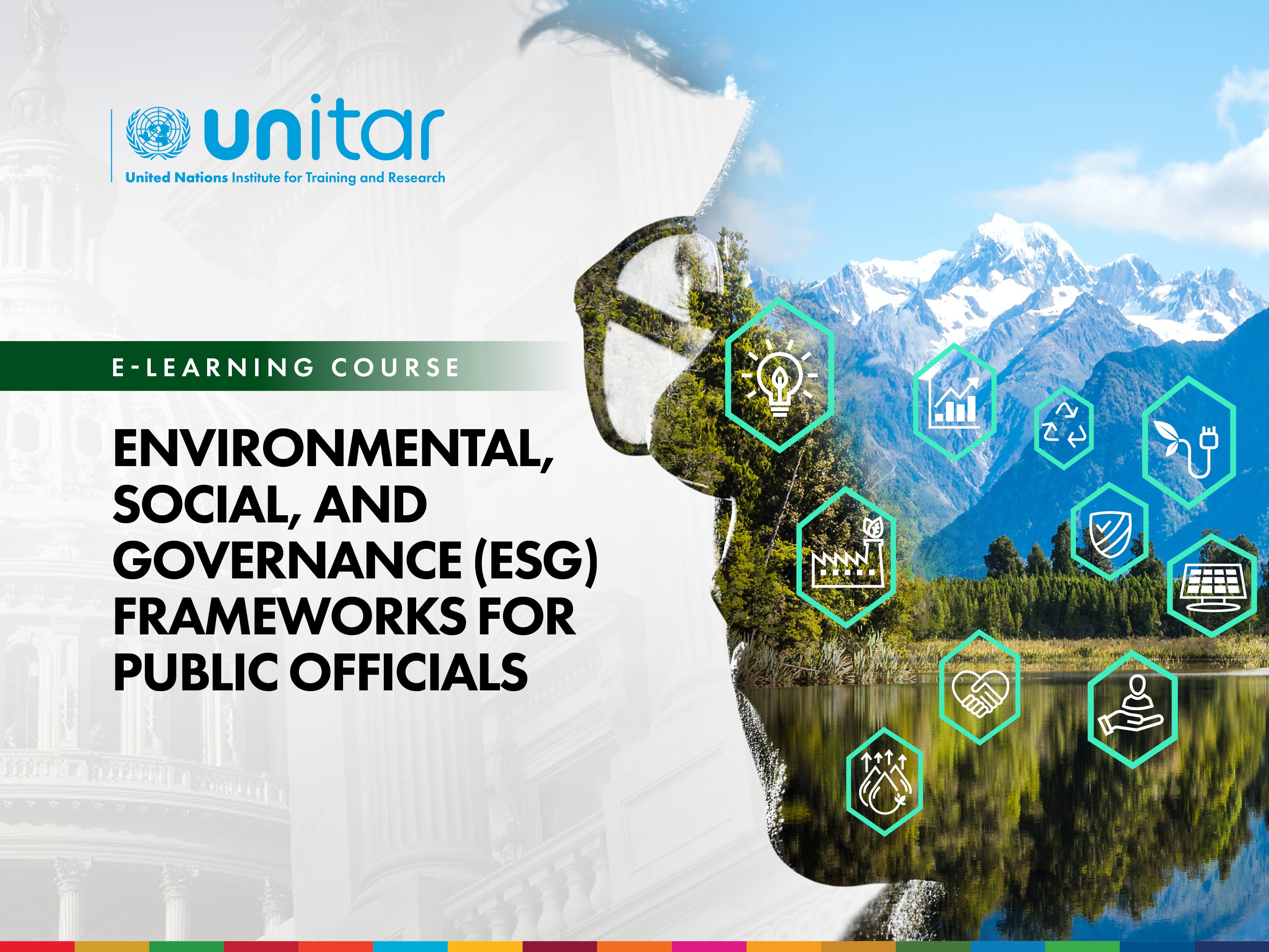Due to the steep increase in public concern for climate and the environment, social justice, and corporate governance, it has become increasingly important for governments to adopt legal and policy frameworks that recognise, promote, and impose ESG standards, monitoring, and reporting schemes. While developed countries are moving forward on ESG-related frameworks, the developing world is still not ready to embrace ESG principles and practices that would motivate private sector entities operating within their borders to improve their role and performance in these disciplines.
In light of the recent adoption of standards and reporting requirements by the European Union, the United Nations Institute for Training and Research (UNITAR) believes that public officials in all areas of the world will need to understand ESG vis-à-vis their roles as policymakers and regulators, especially in the creation of standards and reporting requirements in their national contexts.
The United Nations is committed to promoting the adoption of ESG frameworks that would improve the contributions of private sector entities across society and promote the 2030 Agenda for Sustainable Development. Through this course, public officials will gain a comprehensive understanding of the intricacies of ESG regulation and practice to leverage regulators' roles in drafting, legislating, and adopting policies relevant to ESG regulation.


